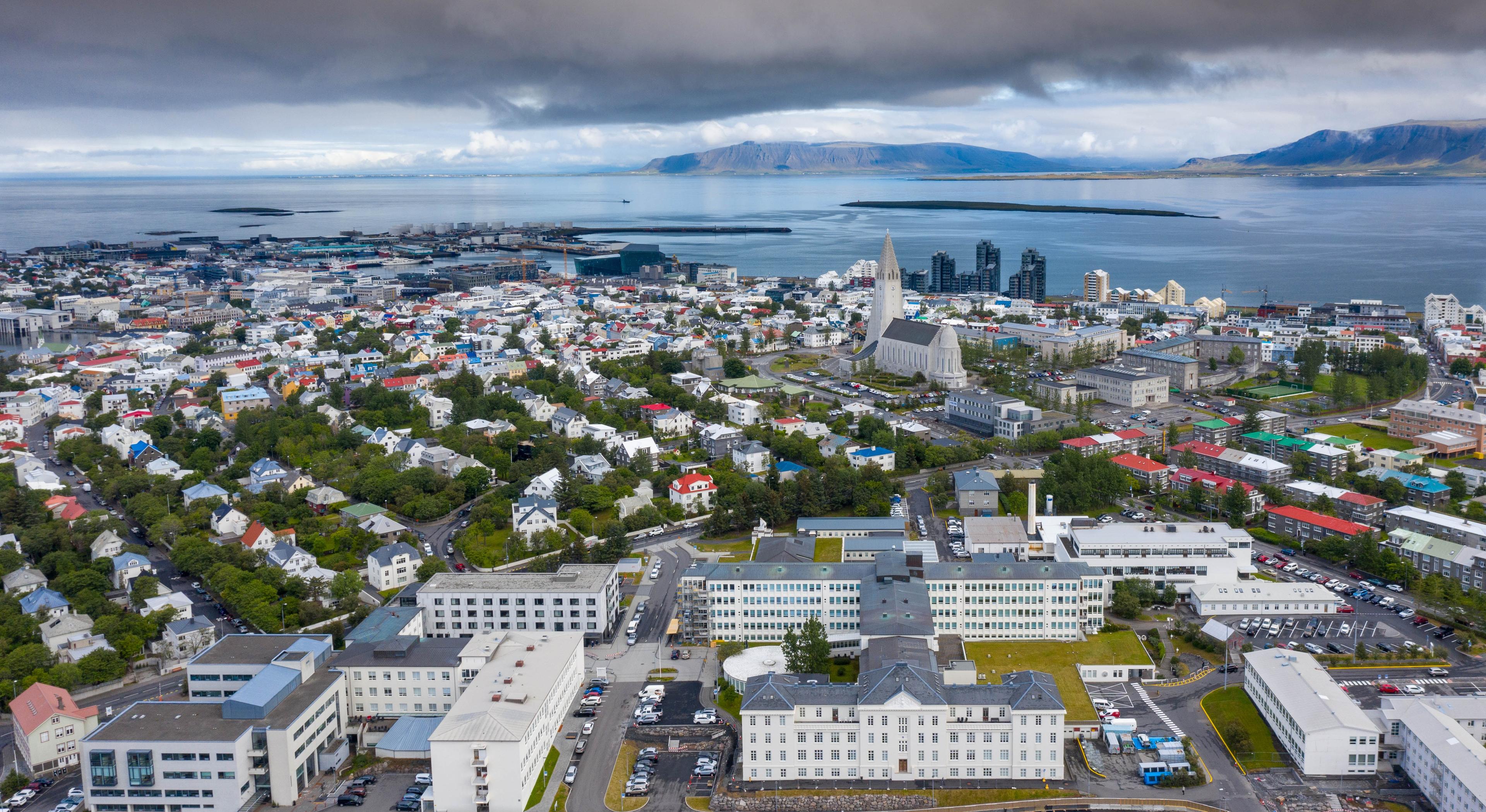
- Best time to visit
- All year round
- Coordinates
- 64.1417° N - 21.9266° W
Things to Do in Reykjavík
Walks and Trails
You won’t find skyscrapers in the centre of Reykjavik, but rather a cluster of red-roofed, colourful buildings housing shops, restaurants, bars and cafés. On the central shopping street of Laugavegur, souvenir shops sell puffin-themed trinkets and chunky knitwear for cold days.
The best way to explore this area is on foot, strolling up the photogenic Rainbow Road to Hallgrímskirkja – the striking modern church in the centre of town. If you don’t fancy walking, the Reykjavik sightseeing hop-on hop-off bus hits all the major sights of the city, from the hilltop Perlan to the old harbour and Hallgrímskirkja.
At sunset, one of the best places for a walk is along the waterfront, where the Sun Voyager sculpture stands against a steely sea and seems to glow in the golden light.
You can walk the length of the seafront and discover Reykjavik’s old harbour, where seafood restaurants await and boats leave for tours of Faxaflói Bay.
Walking tours with a local guide are a great way to get under the skin of the city and learn something new, like the myths and legends of Iceland or all about Reykjavik’s famous cat population that stalks through the central streets.
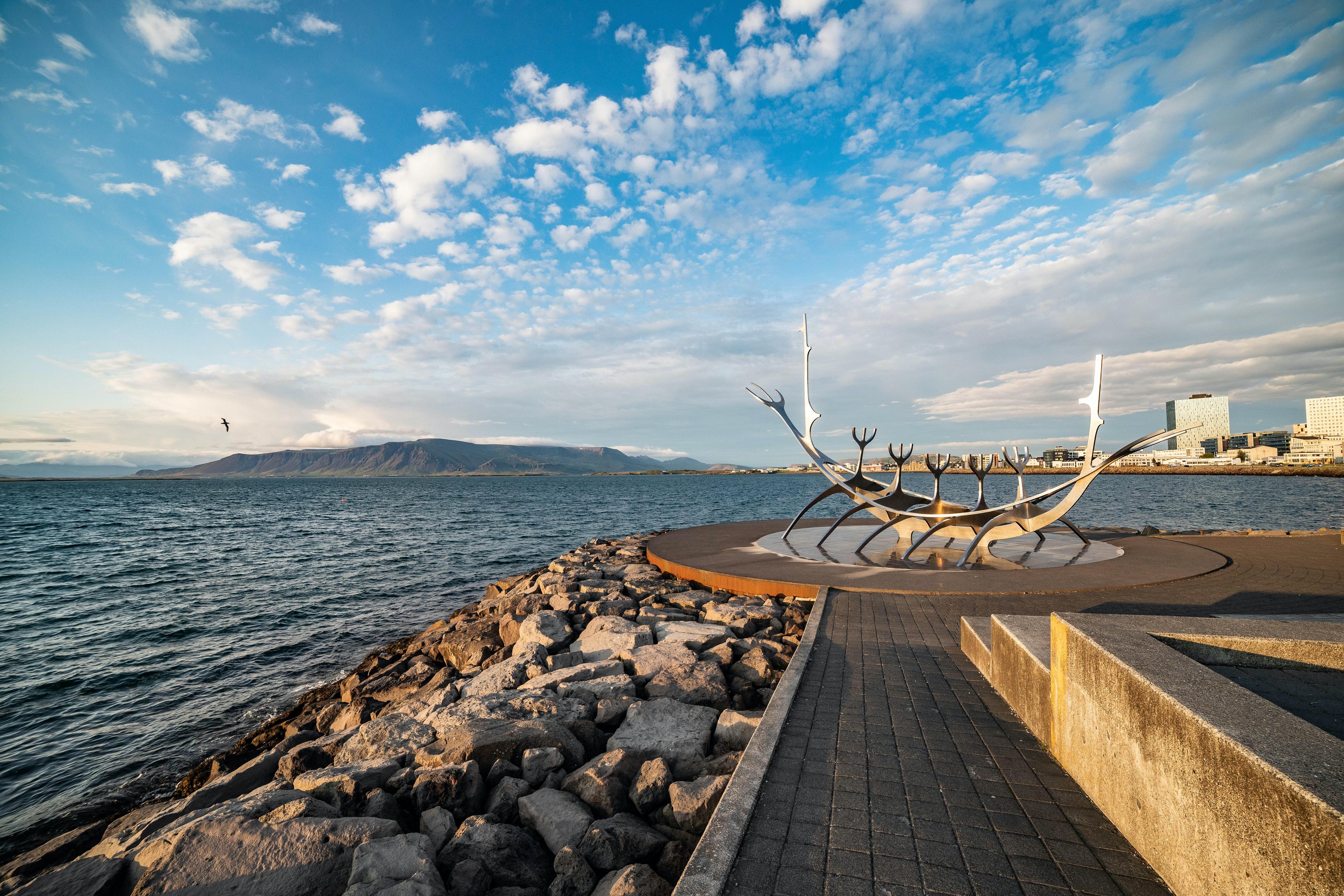
Adventures in and Around Reykjavík
Staying in the city doesn’t mean missing out on Iceland’s famously rugged scenery. From the outskirts of Reykjavik, you can take an ATV tour of the surrounding wilderness. Spend an hour bumping across river beds, summiting a mountain and stopping at a beautiful lake.
The weather in Iceland can be unpredictable, especially in the autumn and winter months. Luckily, if you find yourself on a rainy day in Reykjavik, there’s still plenty to keep you occupied. Perhaps test your Sherlock Holmes levels of deduction in one of the Escape Rooms, perfect for families and groups of friends.
Seeing Iceland’s iconic scenery, from the snowy expanse of glaciers to the rugged lava plains of isolated peninsulas, doesn’t mean getting stuck in a blizzard or caught in the rain, even if a storm is predicted. FlyOver Iceland in the new Grandi Harbour development is an interactive experience that sees you suspended above the island, soaring over land, sea and ice. It is an indoor experience, so it doesn’t matter what the weather is like outside.
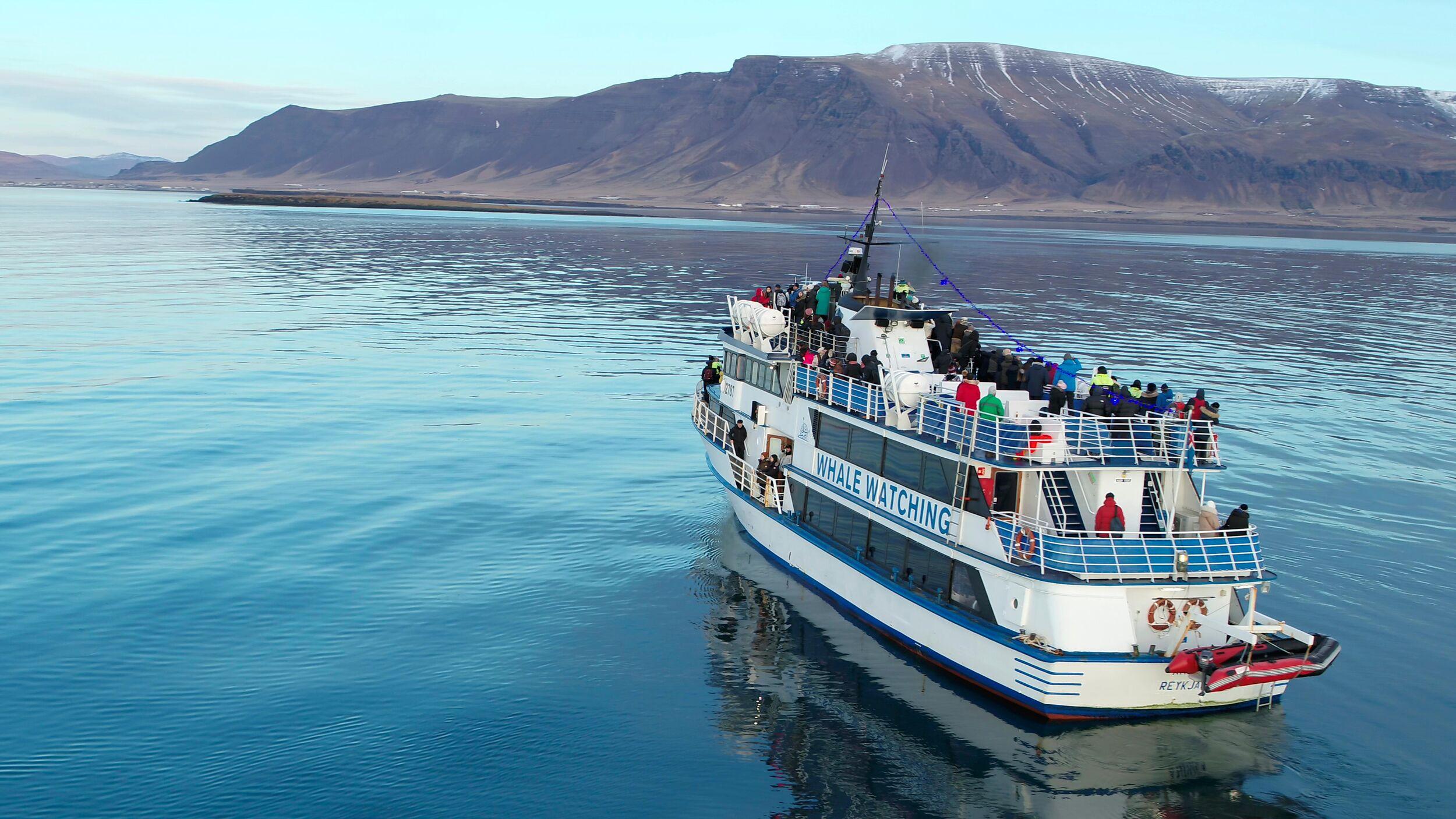
Wildlife and Waves
From the old harbour, boats putter out to spot whales breaching the surface of Faxaflói Bay all year. Whale watching is one of the most popular Reykjavik tours and you can combine a trip to see these majestic creatures out at sea with puffin spotting on the Puffin Express boat. Back on dry land, learn everything there is to know about orcas, humpbacks and minke whales at the Whales of Iceland experience.
Seeing the city from the sea shows you another angle to Reykjavik’s beauty, with Esja Mountain looming in the background. Boat tours offer sea-angling experiences to catch fish in the wild Atlantic or the more sedate option of a Northern Lights boat tour after dark. You have a better chance of spotting the other-worldly green lights twisting and turning against the night sky when out at sea, away from the city lights. Perhaps add some context to your boat trips with a visit to Reykjavik’s Maritime Museum and explore Iceland’s centuries-old relationship with the sea.
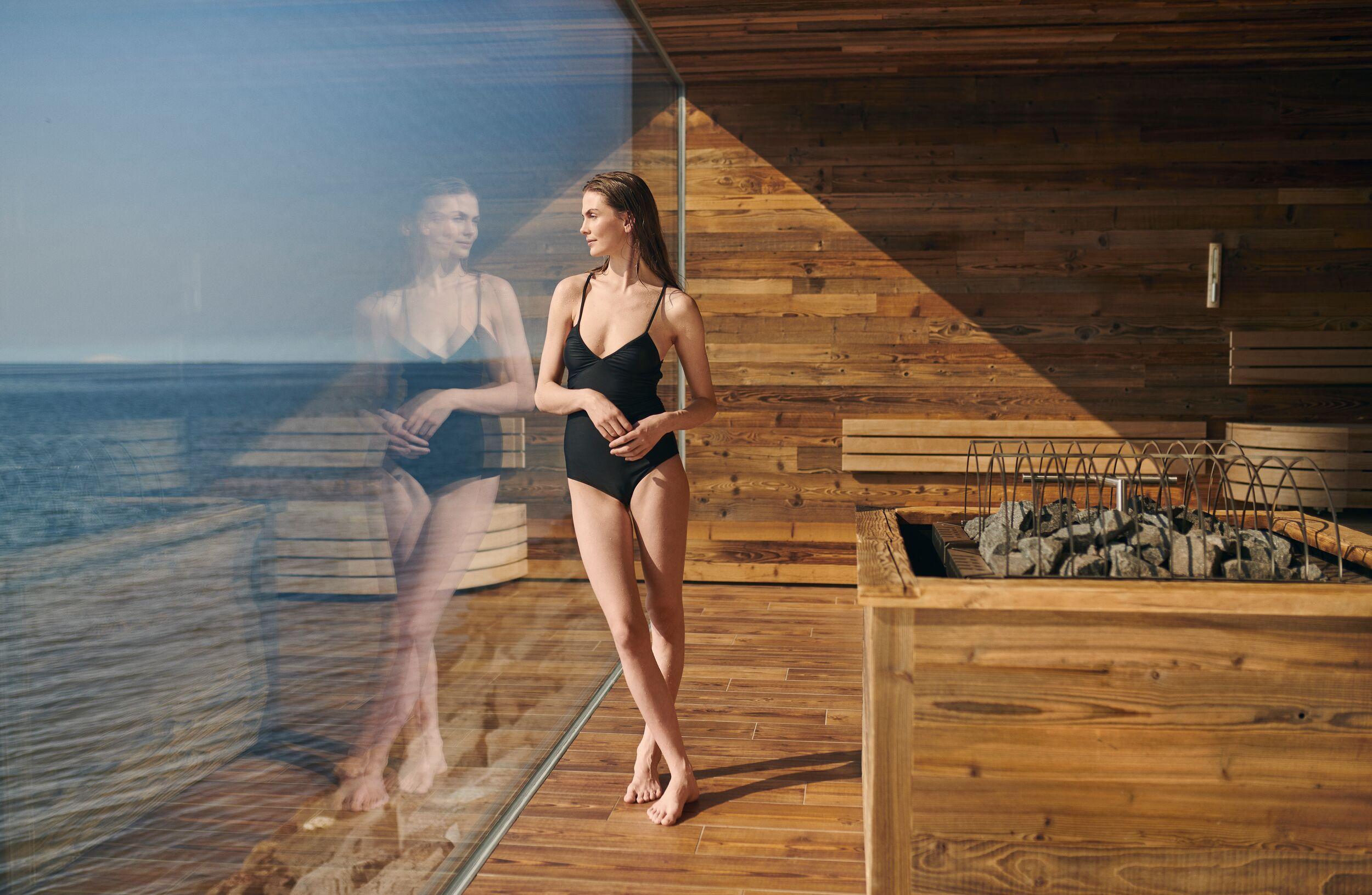
Restoration and Relaxation
Slowing down and taking a few hours to unwind is essential to any holiday – no matter how adventurous you are. At the edge of the Reykjavik map, a fifteen-minute drive from the city centre, you’ll find the Sky Lagoon. This is where you can embrace the Icelandic tradition of outdoor bathing without leaving the capital. Surrounded by black lava stone, this naturally warmed geothermal pool juts out over the Atlantic Ocean, so you can watch the waves as you bathe in the hot tub-like water. It has only been open since 2021, but the Sky Lagoon is fast becoming one of the most popular Reykjavik attractions.
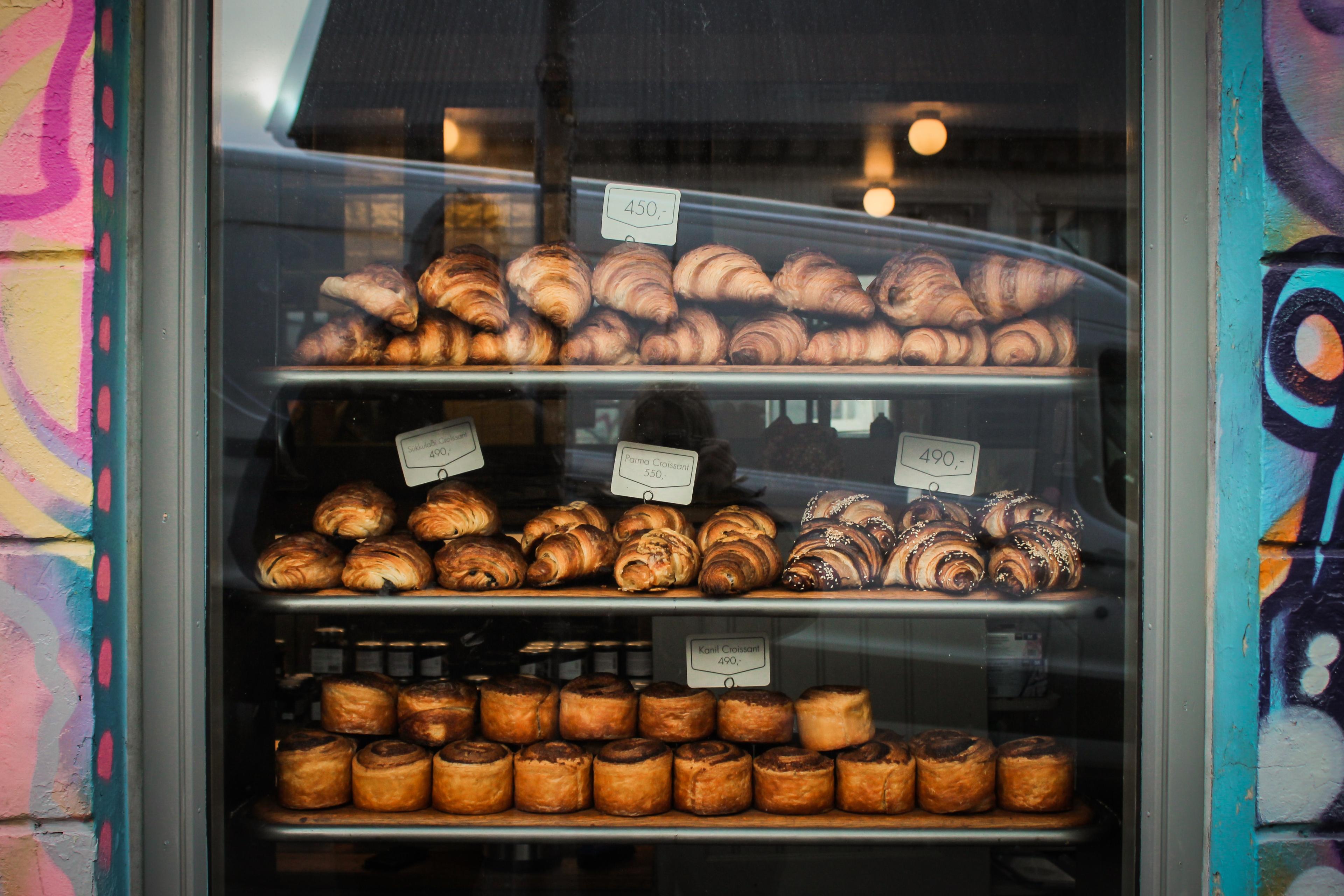
Food and Drink
Reykjavik’s restaurants cater for all budgets, serving hearty Icelandic fare like soup in bread bowls, roast lamb and fish sizzling amid potatoes in cast-iron pans. Within the city centre, you can choose between buzzing food halls serving good value street food or upmarket restaurants showing off the length and breadth of Iceland’s natural larder.
The area around Laugavegur is also the epicentre of Reykjavik’s nightlife, where pubs serve local craft beer and cocktails are served in magic surrounds at the city’s Ice Bar.
If you want to experience Reykjavik’s food and drink scene with the insights of a local, there are plenty of food tours and guided pub crawls. You can learn about the distinctive taste of Arctic lamb and hear about how beer was banned in Iceland until the 1980s while enjoying some of the iconic dishes and drinks of the island.
Everything you need to know about Reykjavik
Reykjavik is a great option for a weekend city break and in three days you can get under the skin of the city. Those spending three days here would probably opt for a day trip or two to take them out of the city to sights like the Golden Circle and south shore adventures.
Compared to most other European destinations, Iceland can be quite expensive. For example, a cup of black coffee costs an average of $5 and beer is particularly expensive at $9 for the average pint in 2023. However, there are plenty of ways to stick to a budget and still have a good time in Reykjavik. Finding happy hours in pubs across the city can keep the cost of entertainment down and dining at Reykjavik’s food halls rather than upmarket restaurants offer a budget alternative.
You’ll probably recognise the striking, stacked facade of Hallgrímskirkja, Reykjavik’s main church, from the front covers of guidebooks and photography books. But that’s not the only striking building in the city. Amidst the low-rise houses there’s the Harpa Concert Hall on the waterfront. Despite its small population (around 140,000 people), there’s a vibrant art scene in Reykjavik on show in the street murals and wall poetry.
Reykjavik has a cold oceanic climate with cool temperatures throughout the year.
Winter (November to March): Cold temperatures often hover near freezing. The first snow might fall in October or November, but continuous snow cover typically starts in December or January and lasts until late March. Storms and high winds are frequent.Daylight lasts only 4-5 hours in December and January, but starts lengthening significantly in February.
Spring (April to May): As temperatures warm, the days grow longer. The weather can be very variable, sometimes experiencing all four seasons in a single day. By May, the "Midnight Sun" provides continuous daylight.
Summer (June to August): The climate is mild, with temperatures ranging from 10°C to 17°C. There's less wind, fewer clouds, and reduced precipitation. Daylight persists for 24 hours, continuing through July until mid-August.
Autumn (September to October): The weather turns cooler with increasing rain and wind. Daylight hours decrease fast, and the first snowfall can occur by late October.
Given Reykjavik's unpredictable weather, it's wise to dress in layers.
If you are planning to rent a car, anywhere in the capital area is ideal. Even including its surrounding towns, Reykjavík is small compared to typical European or US capitals; you can drive through it in 15-30 minutes. If you have a car, it's wise to avoid the downtown area because parking can be a challenge. However, if you're not renting a car, ensure your accommodation is near a tour pickup bus stop. The downtown area has numerous pickup stops, but there are none in the suburbs.
The most popular attractions in Reykjavik are the main shopping street of Laugavegur, lined with clapboard shops selling puffin paraphernalia and cosy little restaurants and cafés. Hallgrímskirkja is one of the most striking buildings in the city, attracting photographers from far and wide. Spa-seekers flock to one of Iceland’s newest geothermal hot springs at the Sky Lagoon, jutting out over the Atlantic Ocean just outside the centre.
Although Iceland and the UK are in the same time zone, they do not always share the same time. Iceland uses GMT+0, and does not use daylight savings time so during some months of the year Iceland is an hour behind the UK. It is either four or five hours ahead of New York, depending on the time of year.
Ideally, you would spend two or three days dedicated to exploring Reykjavik. Ideally, allocate two or three days to explore Reykjavik thoroughly. For those who prefer a leisurely pace, wish to immerse themselves in the ambiance, visit museums, and mingle with the locals, you can easily spend even more days without getting bored. Many visitors who prefer not to drive use Reykjavik as a base, taking day trips to other parts of the island.
Reykjavik is on the southwest coast of Iceland and stretches in a horseshoe shape around Faxaflói Bay. Iceland’s only international airport, Keflavik Airport (not to be confused with Reykjavik Airport which is for domestic flights only), is 50 kilometres from Reykjavik and it takes around 45 minutes to drive from the centre to the airport.
The best month to visit Reykjavik depends on what you want to do. Those seeking the Northern Lights will need to visit in the darker months of late autumn and winter. It’s possible to see the ethereal green lights dancing in the night sky between September and March, but the deeper in winter (late November, December and January) you are, the more likely you are to spot them. The middle of summer is the peak season for whale watching when the sealife is at its most active and the weather tends to be more reliable and warm.
Two days is enough to see the highlights of Reykjavik – boat tours out into Faxaflói Bay to watch the wildlife, walks along the seafront to snap the perfect picture of the Sun Voyager glowing in the light at sunset, learning the Viking history of the island at the Saga museum and sampling some of the Icelandic food and drink on offer.
Reykjavik offers several convenient options for getting around:
Hop-On Hop-Off Bus: Ideal for sightseeing, this bus service allows tourists to explore major attractions at their own pace. You can hop off at a site of interest and then hop back on to proceed to the next location.
Walking: Thanks to its compact size, Reykjavik is a highly walkable city. You can easily traverse the city center from one end to the other in about ten minutes.
Public Transport: While Reykjavik's public transportation system is efficient, it may not run as frequently as those in larger capitals. However, it remains a viable option for getting from point A to B.
Electric Scooters & Bicycles: Especially popular in the summer months, rentable electric scooters and bicycles provide a fun and eco-friendly way to navigate the city streets.
Regardless of your preferred mode of transportation, Reykjavik offers a pleasant and manageable experience for visitors.
A day is the absolute minimum you should spend in Reykjavik. It may be a small city, but there is much to see and do, from whale-watching to sampling local cuisine and hitting the museums.
Pronouncing "Reykjavík" can be a bit tricky for those unfamiliar with Icelandic phonetics. Here's a basic guide:
Reykjavík: [ˈreiːkjaˌviːk]: “raikeyow-veek”
Reyk - Sounds like "raike" but with a rolled "r"; avík - Sounds like "yow-veek".
Emphasis is on the first syllable: REYkjavík.
Activity-wise, there is plenty to do in Reykjavik. Join the hop-on hop-off bus to hit the highlights of the city from the beautiful Hallgrimskirkja church to the modern Perlan building offering sweeping views from atop a hill. Whale watching boat tours leave from the old harbour out into Faxaflói Bay and there are myriad museums covering everything from Vikings to whales and punk music. Then there’s rest and relaxation on offer at the Sky Lagoon, a geothermally heated lagoon on the outskirts of the city.
Related tours
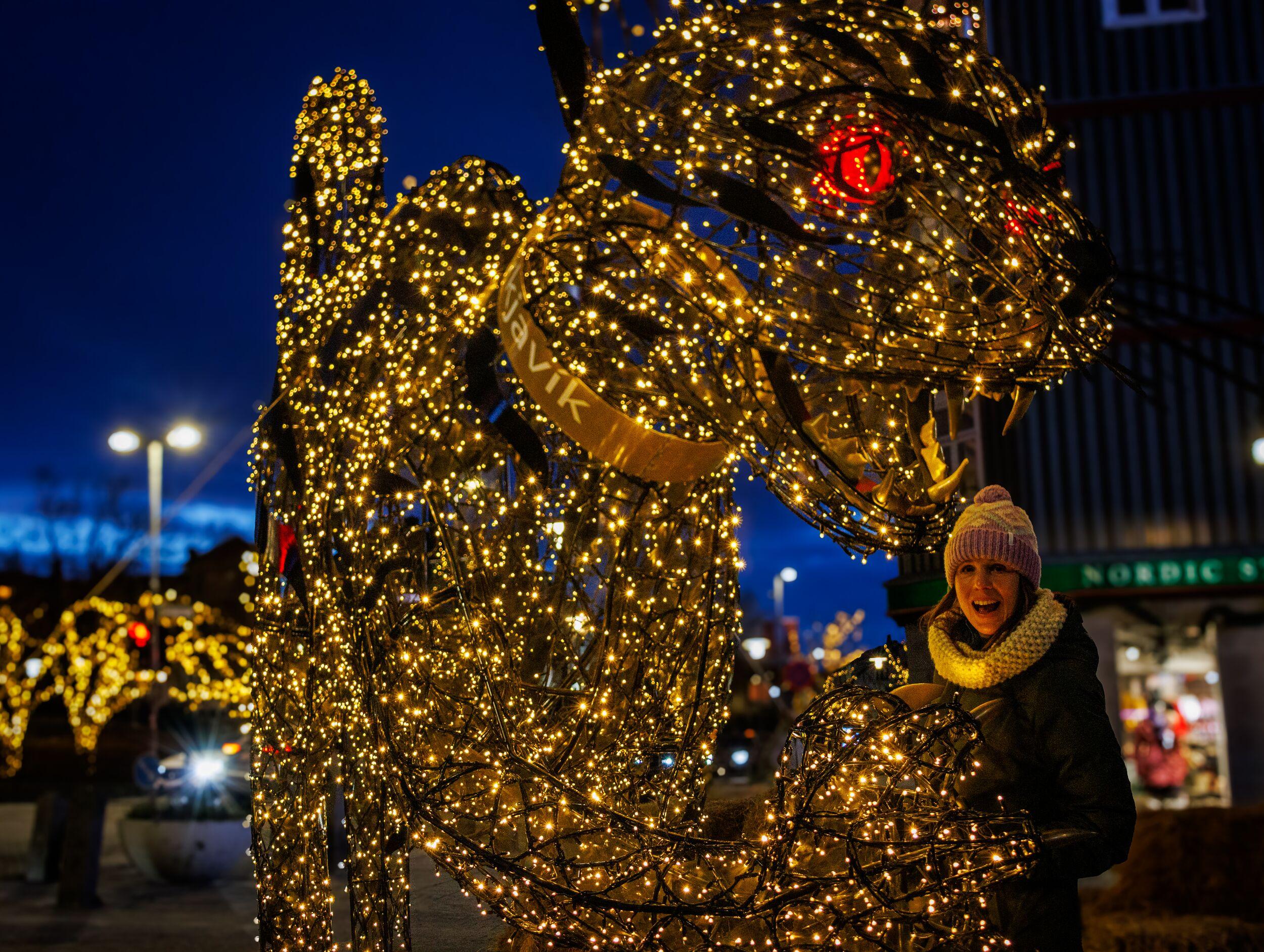
- Holiday Tour
Reykjavík Christmas Walk
This cultural and gastronomic walking tour of Reykjavík is a wonderful alternative to your traditional city sightseeing tour and will get you into a true Christmas mood!
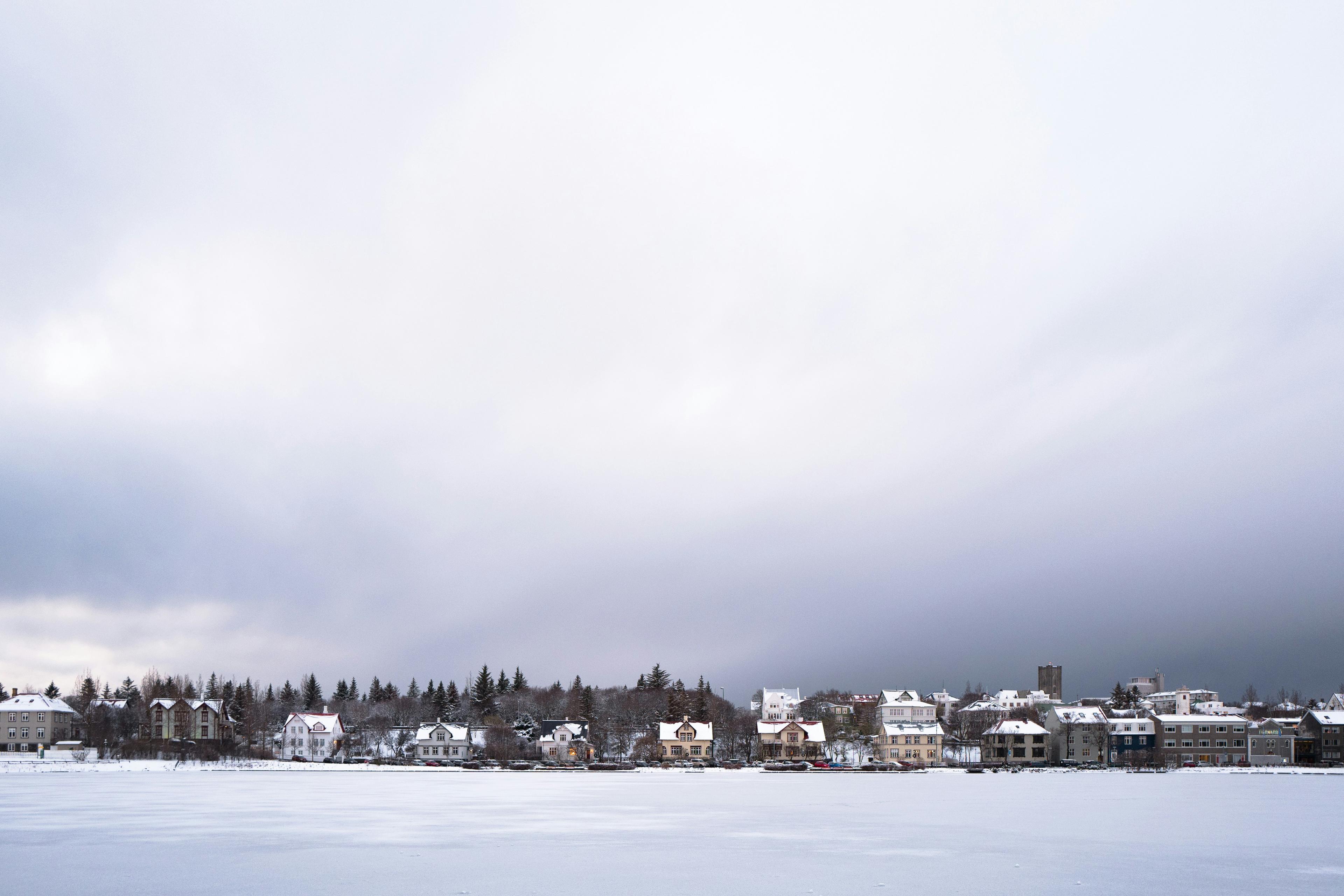
- Holiday Tour
New Year's Traditions and Mystery Tour
Join our guided tour to uncover Iceland's unique New Year's Eve traditions and enchanting folklore, led by a local expert.
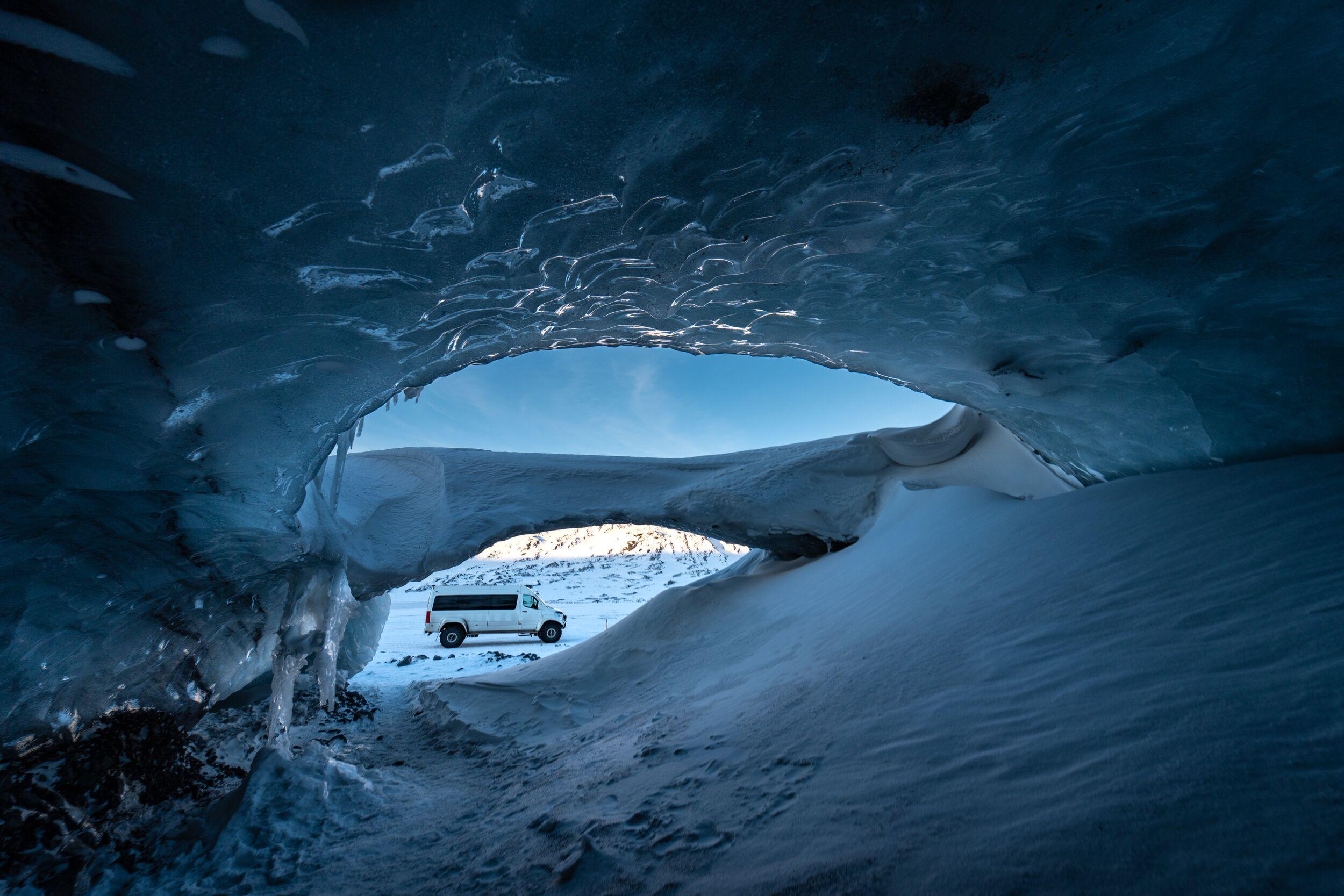
South Coast & Ice Cave offbeat adventure
Join our South Coast Iceland Super Jeep Tour to explore stunning waterfalls, black sand beaches, and a magical glacier ice cave. Travel in comfort and style in our luxury Super Jeep with a small group for a more personal experience.
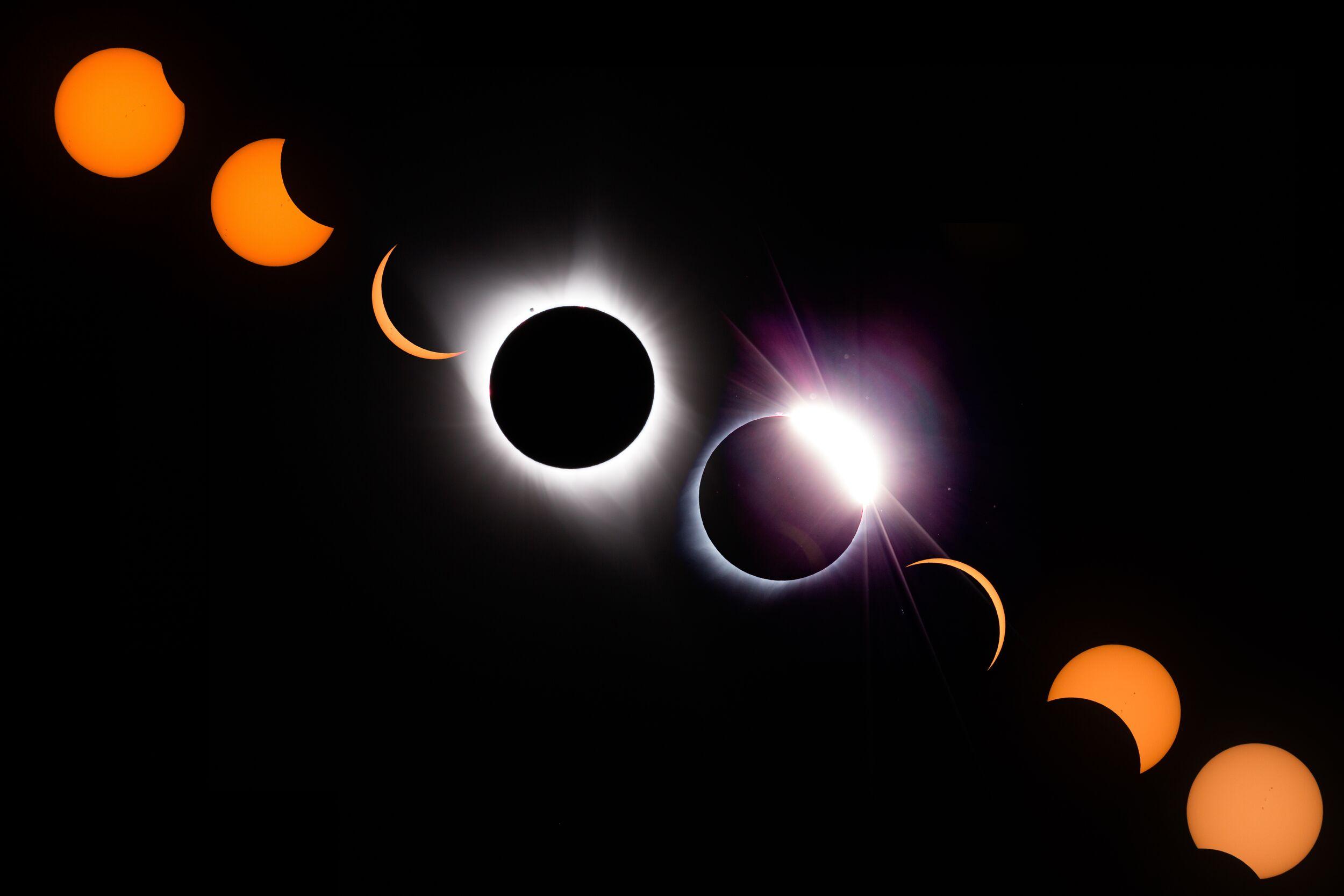
Iceland in Totality: 6-Day Adventure Tour with 2026 Solar Eclipse
A once-in-a-lifetime opportunity to join a 6-day guided hiking tour including a total solar eclipse in Iceland.
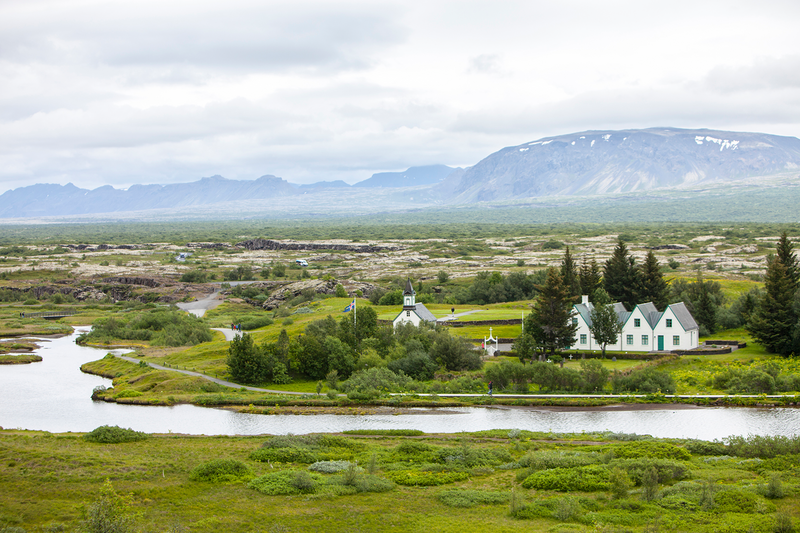
- Multiday Tour
Iceland On a Budget - 5 days
Discover Iceland’s breathtaking landscapes and vibrant capital without stretching your budget on this 5-day (4 nights) Iceland on a Budget package. Experience the country’s most famous sights, including the Golden Circle’s geysers and waterfalls, the dramatic South Coast, and Reykjavík’s best landmarks with a Hop-On Hop-Off city pass. With affordable travel, carbon-neutral transportation, and expert local guides, this package provides an incredible Iceland experience at great value.
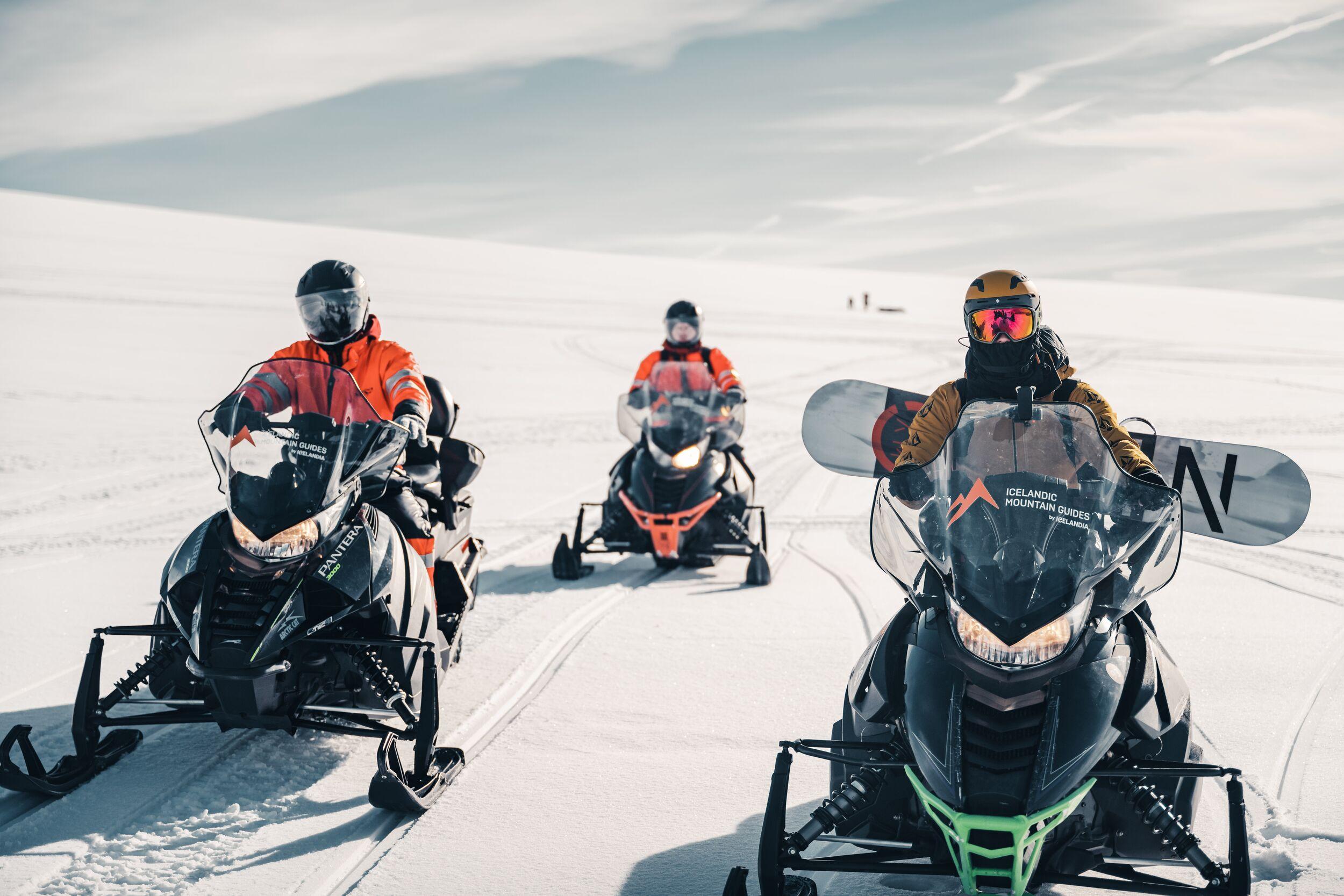
Golden Circle Super Jeep and Snowmobile Tour
Experience Iceland’s top attractions in an exciting way! Explore the famous Golden Circle in a luxury Super Jeep, then venture onto Langjökull, the country’s second-largest glacier, for an exhilarating snowmobile ride.
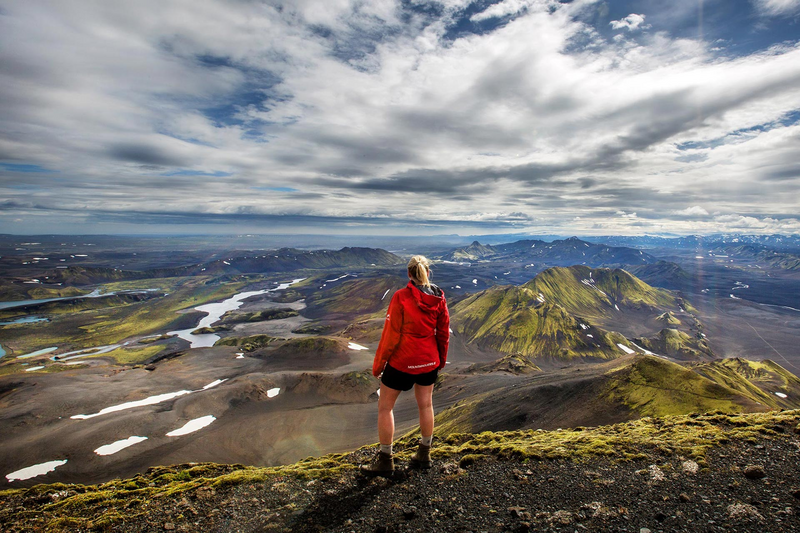
The Volcanic Trails
Unveil Iceland's wild beauty on a 5-day trek through Vatnajökull National Park. Traverse moss, waterfalls, canyons, and deserts. An untamed Icelandic odyssey.
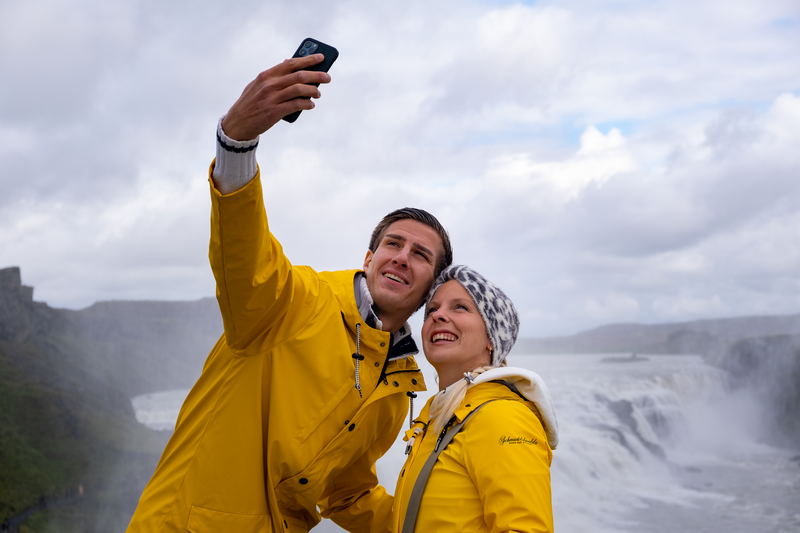
- Multiday Tour
Iceland On a Budget - 4 days
Explore Iceland’s most stunning landscapes without breaking the bank on this 4-day (3 nights) Iceland on a Budget package. Experience the highlights of the Golden Circle and South Coast, where powerful waterfalls, black sand beaches, and volcanic wonders await. With affordable, hassle-free travel options, carbon-neutral transportation, and expert guides, this package ensures an unforgettable Icelandic adventure at great value.
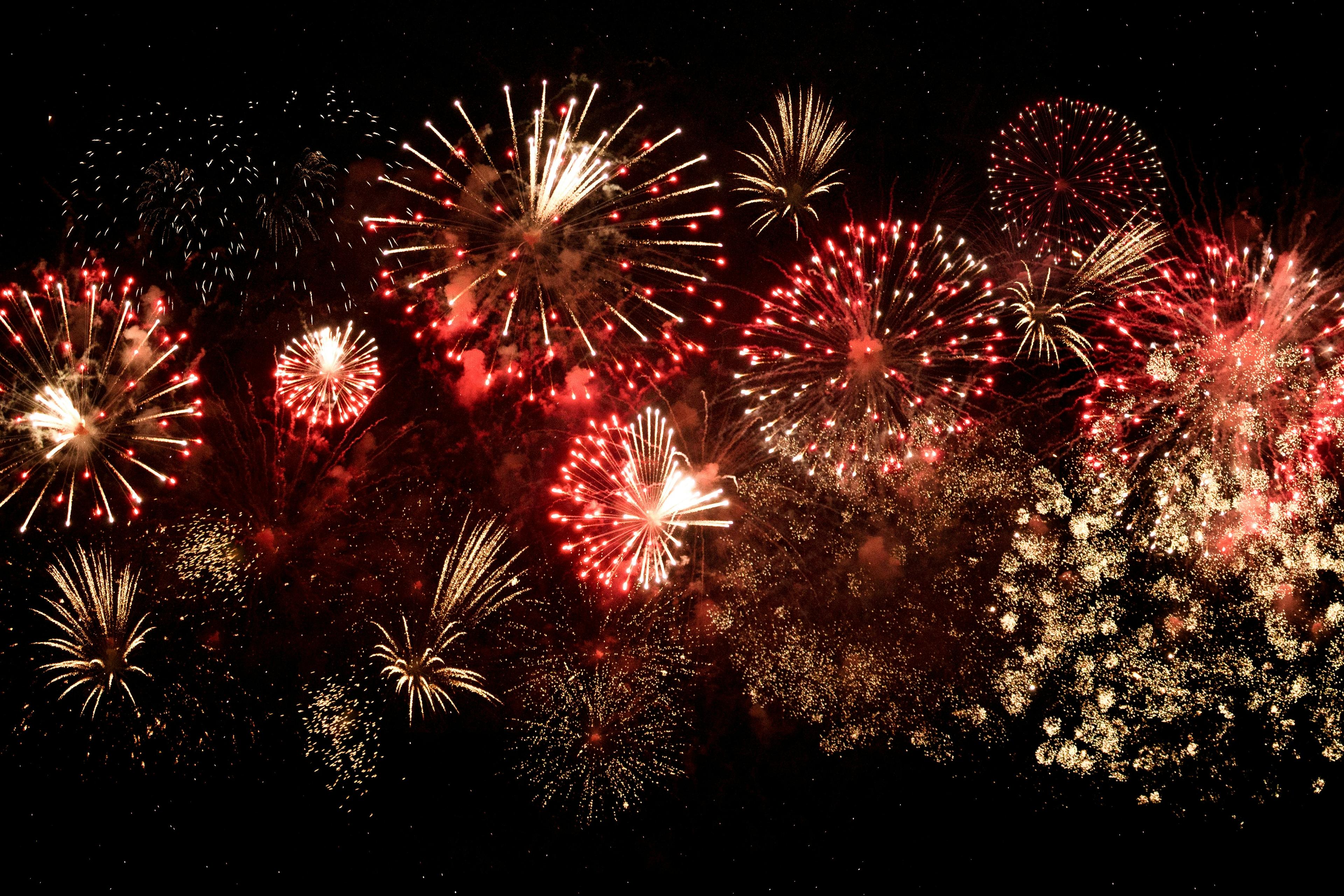
- Holiday Tour
New Years Firework Cruise
Set sail into Reykjavík’s enchanting New Year’s Eve night with the New Year's Firework Cruise! This luxury cruise offers the perfect vantage point to witness Reykjavík’s legendary fireworks from the sea.
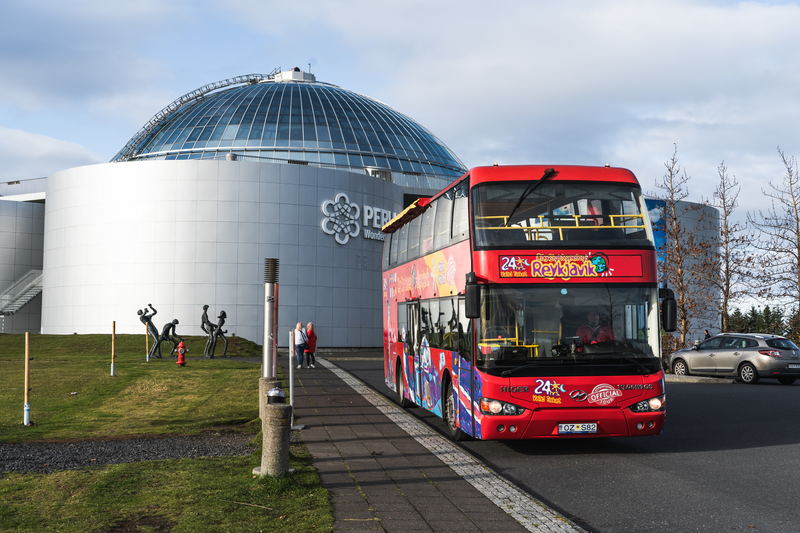
City Sightseeing & Wonders of Iceland
Take a bus tour with City Sightseeing and explore Reykjavík at your leisure, with the opportunity to hop on and off at conveniently located bus stops. At Perlan – Wonders of Iceland the latest science, and the best museum artists and technologists have joined forces to create an unforgettable experience that brings Iceland’s natural wonders to life through interactive exhibits and cutting-edge technology.
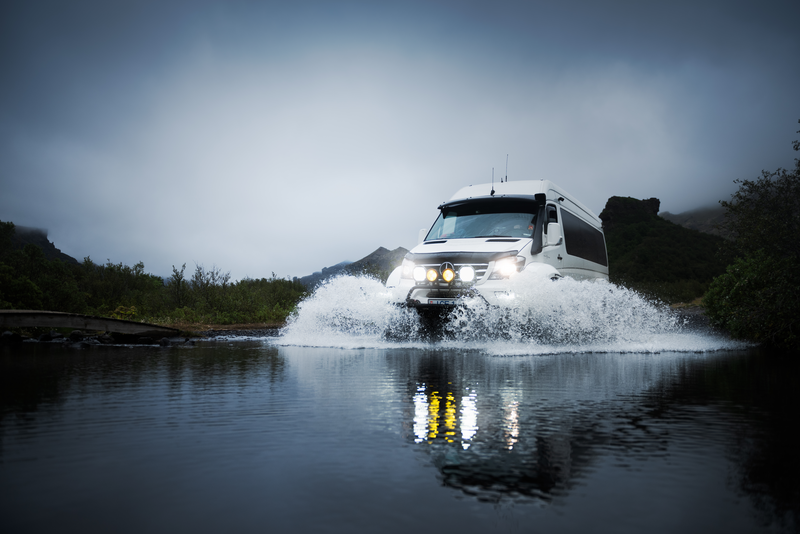
Thórsmörk - Valley of Thor Super Jeep Tour
Join an extraordinary adventure through Iceland's rugged landscapes with our exclusive Þórsmörk Super Jeep Tour. Explore the Valley of Thor in style, led by expert guides who know every inch of this stunning terrain.
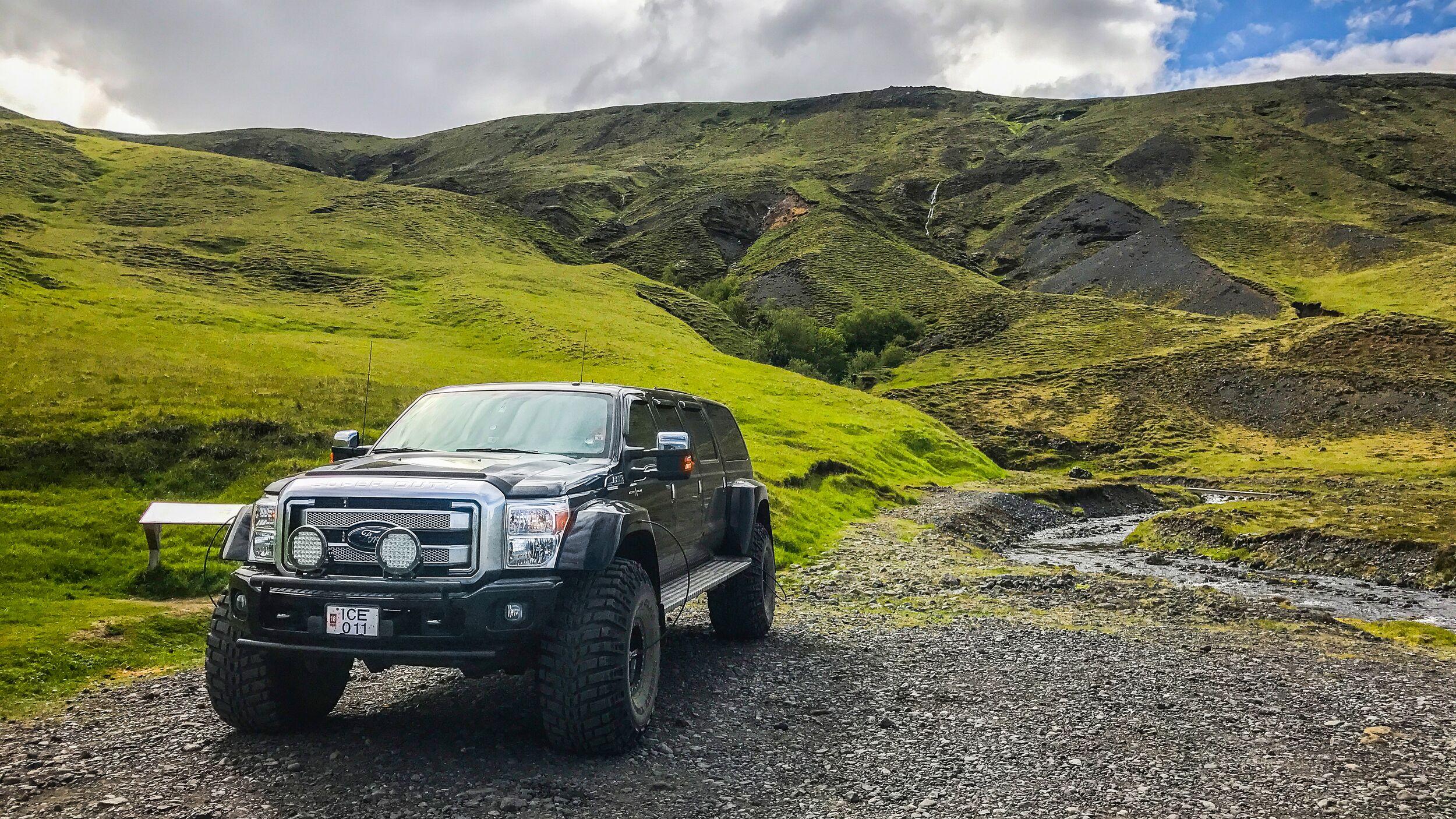
Private Golden Circle tour
Experience Iceland’s Golden Circle on a private tour with a dedicated guide. Visit Þingvellir, Geysir, and Gullfoss at your own pace for a personalized adventure.
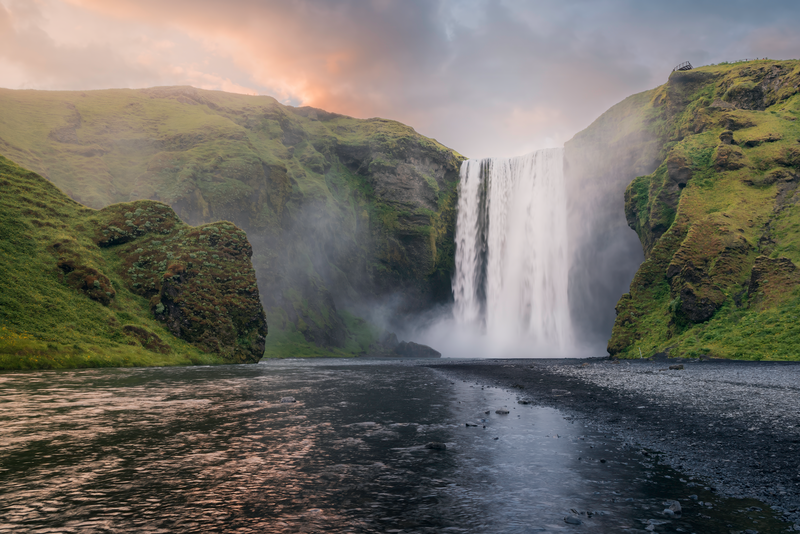
- Multiday Tour
Iceland On a Budget - 6 days
Experience Iceland’s top sights at great value with this 6-day (5 nights) Iceland on a Budget package. Visit the famous Golden Circle’s geysers and waterfalls, explore the dramatic South Coast’s glaciers and black sand beaches, and uncover Reykjavík’s highlights with a Hop-On Hop-Off city pass. End your journey with a relaxing soak at Hvammsvík Hot Springs, a stunning geothermal retreat in nature. With affordable travel, carbon-neutral transfers, and expert local guides, this package provides an unforgettable adventure without the high costs.
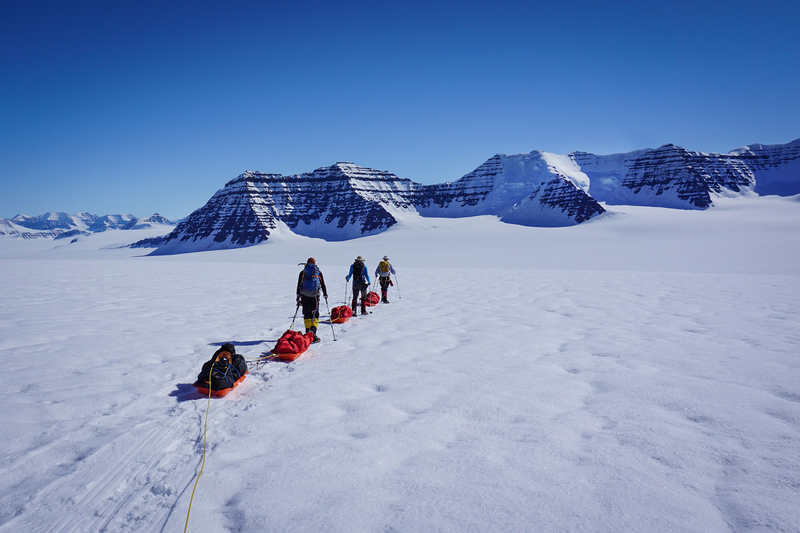
Mt Gunnbjörn, the Highest Peak in Greenland
Are you dreaming of an Arctic adventure of a lifetime? This 5-day tour has you scaling the highest peak of the Arctic (3694 m/12120 ft). Mt. Gunnbjörn has been called the 8th continental peak due to its massive size, and it beckons climbers from around the world. On the east coast, where towering mountains rise from the Greenland icecap, the conditions are pristine and similar to those in Antarctica. There’s nothing quite like challenging yourself to climb in one of the most isolated areas of the north, with the fresh Arctic air and stark white snow. An experienced and qualified guide will lead the group, keeping participants safe and informed. This is not a trek for a beginner as the hike is considered strenuous, and participants should have mountain climbing experience and be prepared to camp for four nights. Mt. Gunnbjörn is easily accessible on a ski plane from Iceland. Once in the Watkins Mountains, we set up a comfortable base camp at the foot of the mountain. To make the summit day more manageable, we establish one camp on the way to the summit. The climb can be done on snowshoes, with the last part done on crampons.
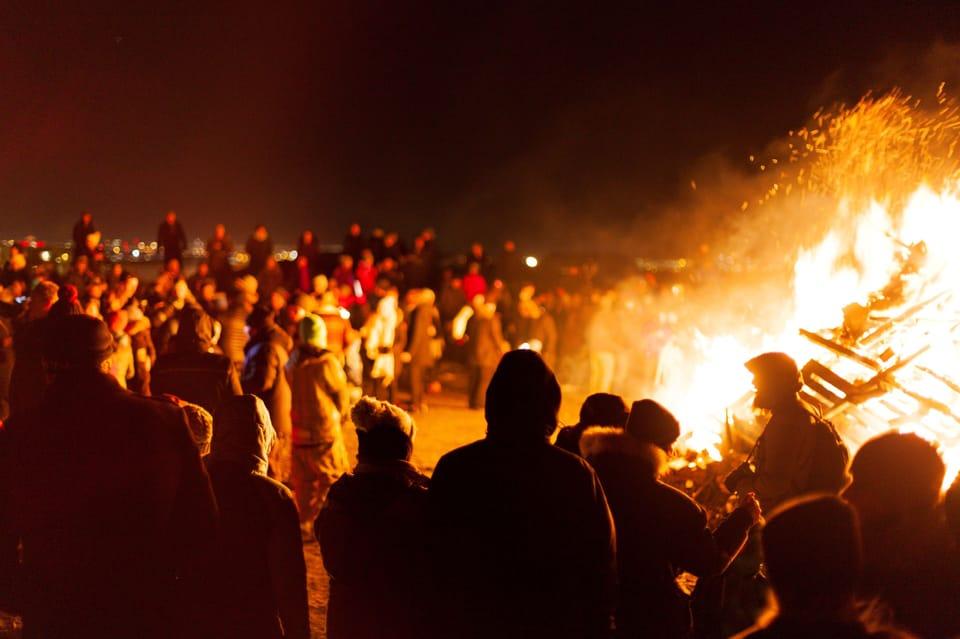
- Holiday Tour
New Year’s Eve Bonfire Tour
Join Reykjavík’s giant New Year’s Eve bonfires and celebrate with locals through song, stories, and community. Experience Icelandic culture in unforgettable style.
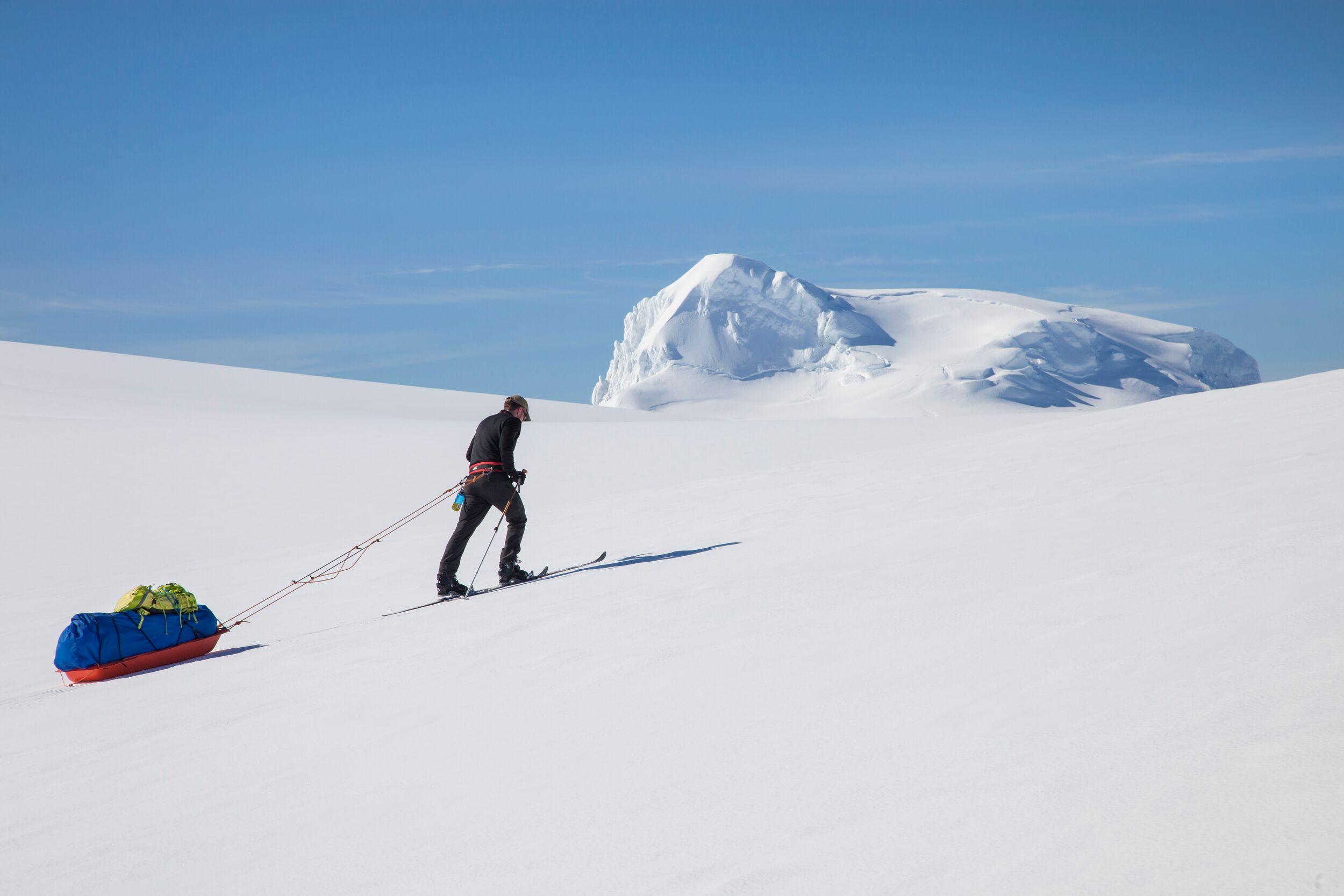
Vatnajökull Glacier Expedition
Cross the largest glacier in Europe during this perfect combination of adventure, stunning nature and physical challenge. This is a dream tour for outdoor enthusiasts! Crossing the mighty Vatnajökull ice cap should be on the list for every ambitious adventurer.
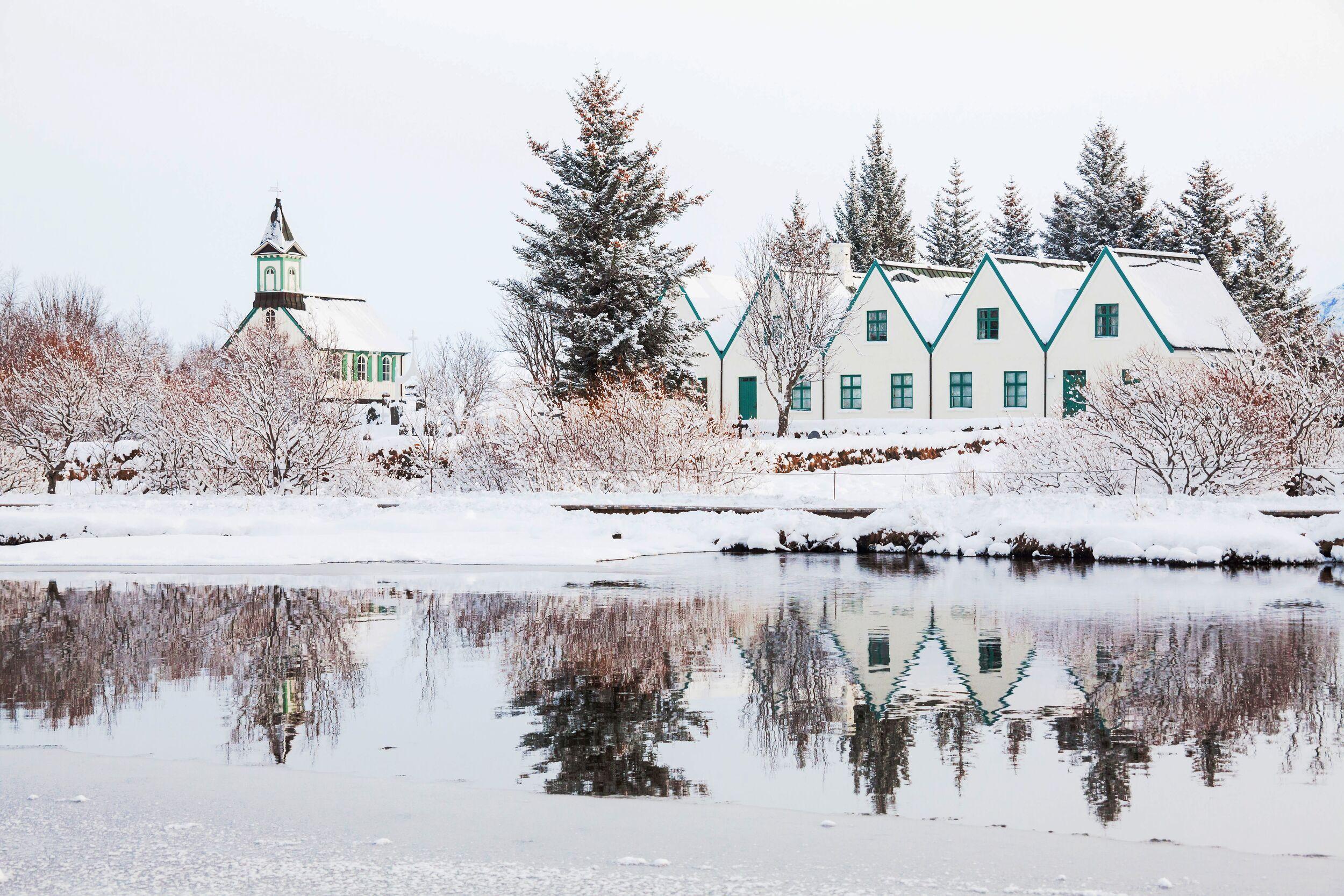
- Holiday Tour
Golden Circle & Reykjavík Christmas Walk
Experience Iceland's holiday magic with a Golden Circle tour and Reykjavík Christmas walk, which are filled with twinkling lights, winter scenery, and Icelandic traditions.
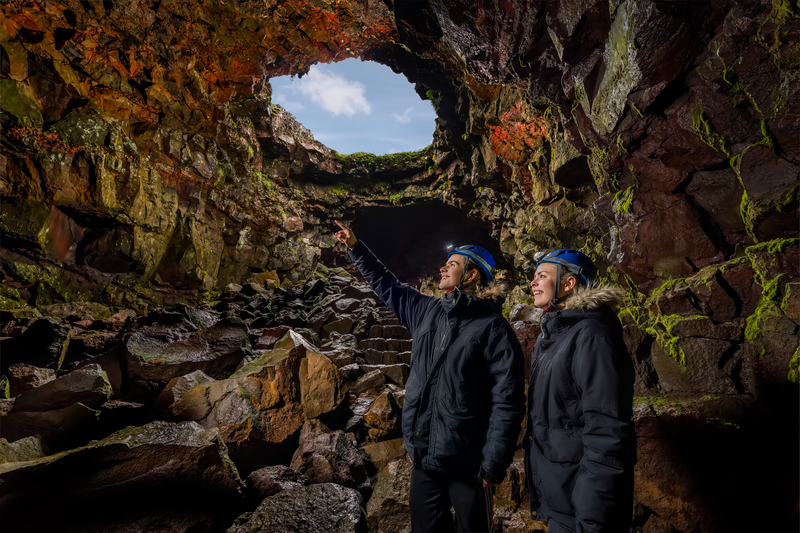
- Multiday Tour
Iceland On a Budget - 7 days
Explore Iceland’s breathtaking landscapes, geothermal hot springs, and volcanic wonders on this 7-day (6 nights) Iceland on a Budget package. See the geysers and waterfalls of the Golden Circle, marvel at the black sand beaches of the South Coast, and discover Reykjavík’s cultural landmarks with a Hop-On Hop-Off city pass. Relax in the serene geothermal pools of Hvammsvík and step inside a real lava tunnel, where you’ll walk through Iceland’s volcanic history. With affordable travel, carbon-neutral transfers, and expert local guides, this package provides a budget-friendly way to experience Iceland’s best sights.
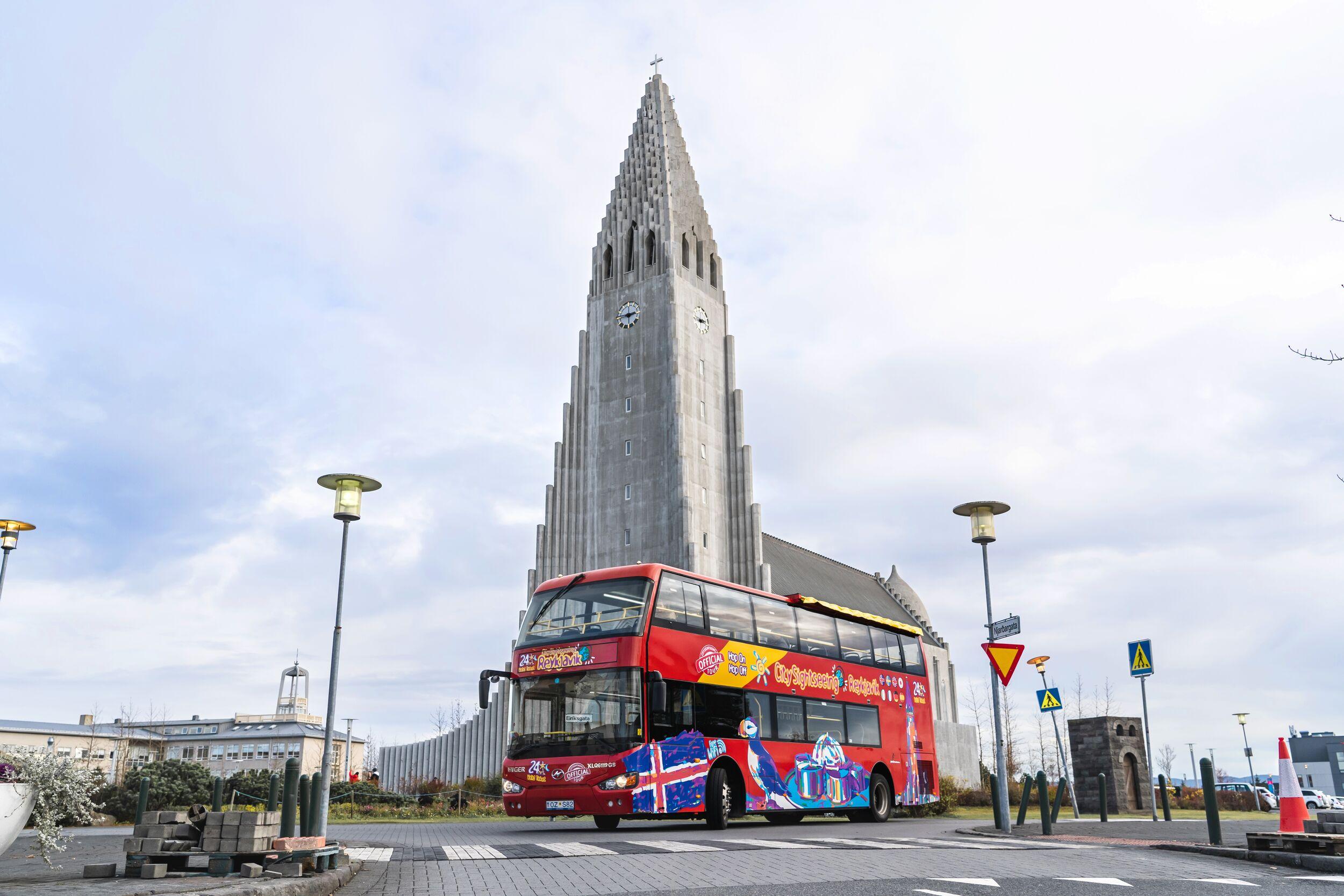
Hop On - Hop Off - City Sightseeing 48 hours
Delve deep into the heart of Reykjavík with our 48-hour City Sightseeing Hop On Hop Off bus pass. This extended pass offers you the freedom to explore Reykjavík's modern vibe and its proximity to nature at your own pace, with plenty of time to discover all the hidden gems of this magical city.
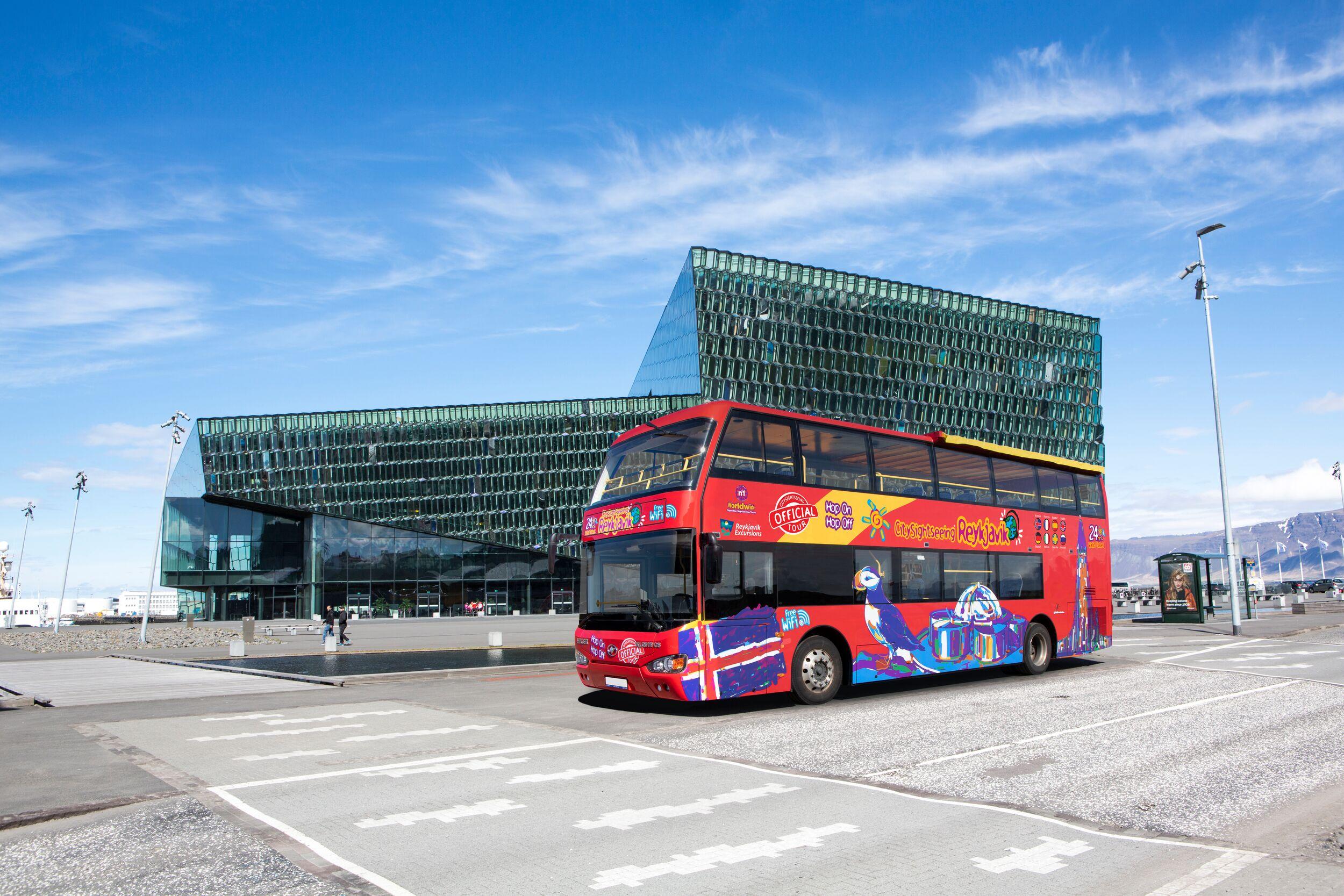
Hop On - Hop Off - City Sightseeing 24 hours
Explore Reykjavík at your own pace with the City Sightseeing Hop-On Hop-Off bus service—a convenient, flexible, and fun way to experience Iceland’s capital. With a 24-hour pass, you can hop on and off at Reykjavík’s most iconic attractions, skipping the hassle of car rentals or crowded public transport.
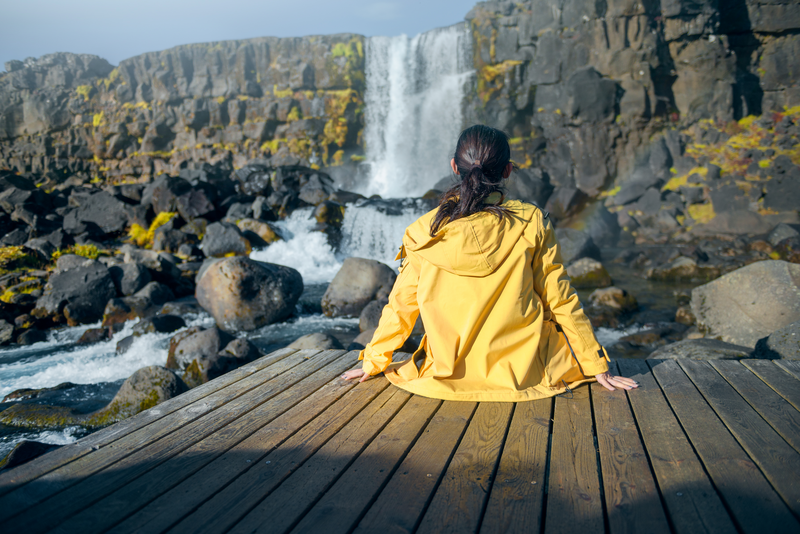
The Golden Circle & Hop On Hop Off - Combo Deal
Experience the best of Iceland's natural wonders and the charm of its capital city with our Golden Circle & City Sightseeing combo. This tour combines an insightful 8-hour journey through the iconic Golden Circle, with a visit to the Fridheimar Tomato Greenhouse along the way, and additionally, the flexibility of exploring Reykjavík at your own pace on the Hop On Hop Off bus.

